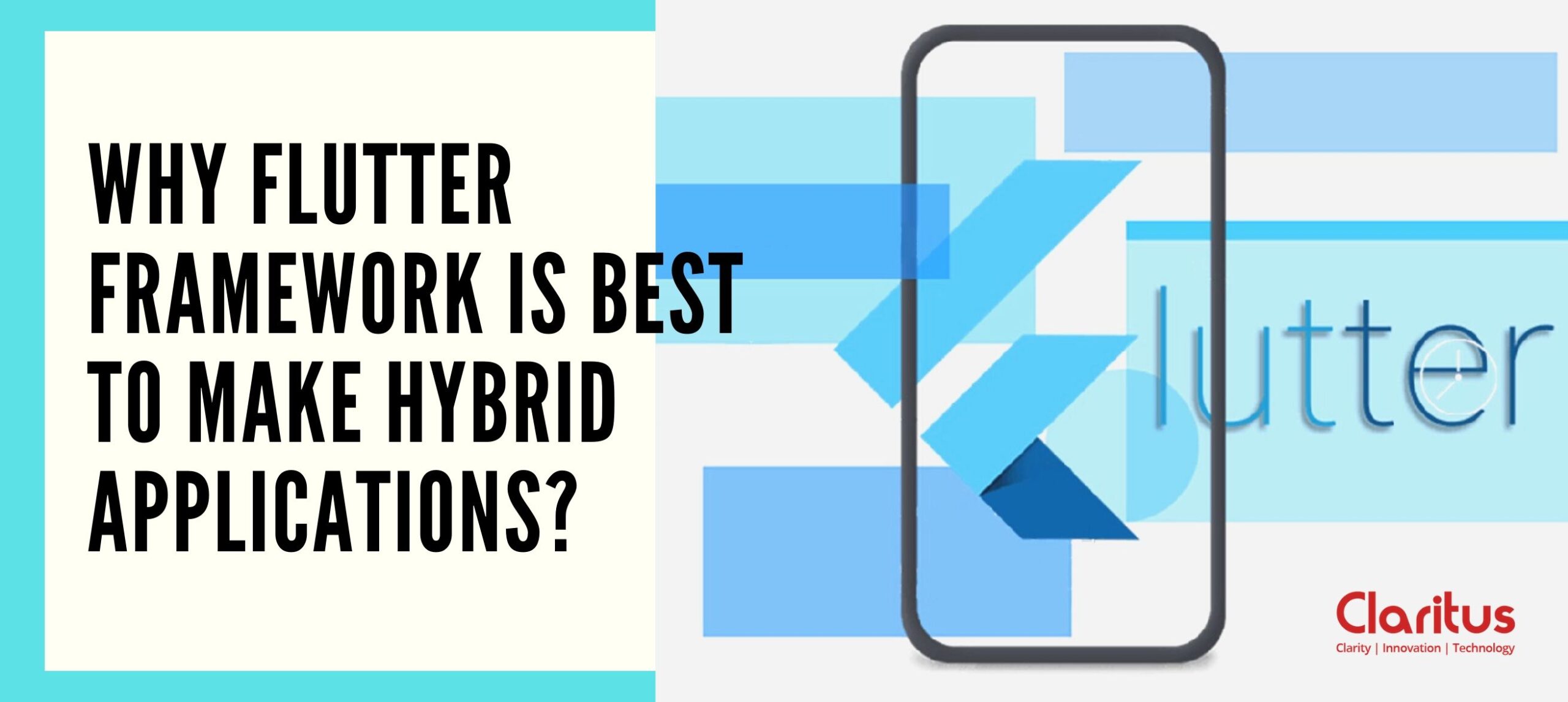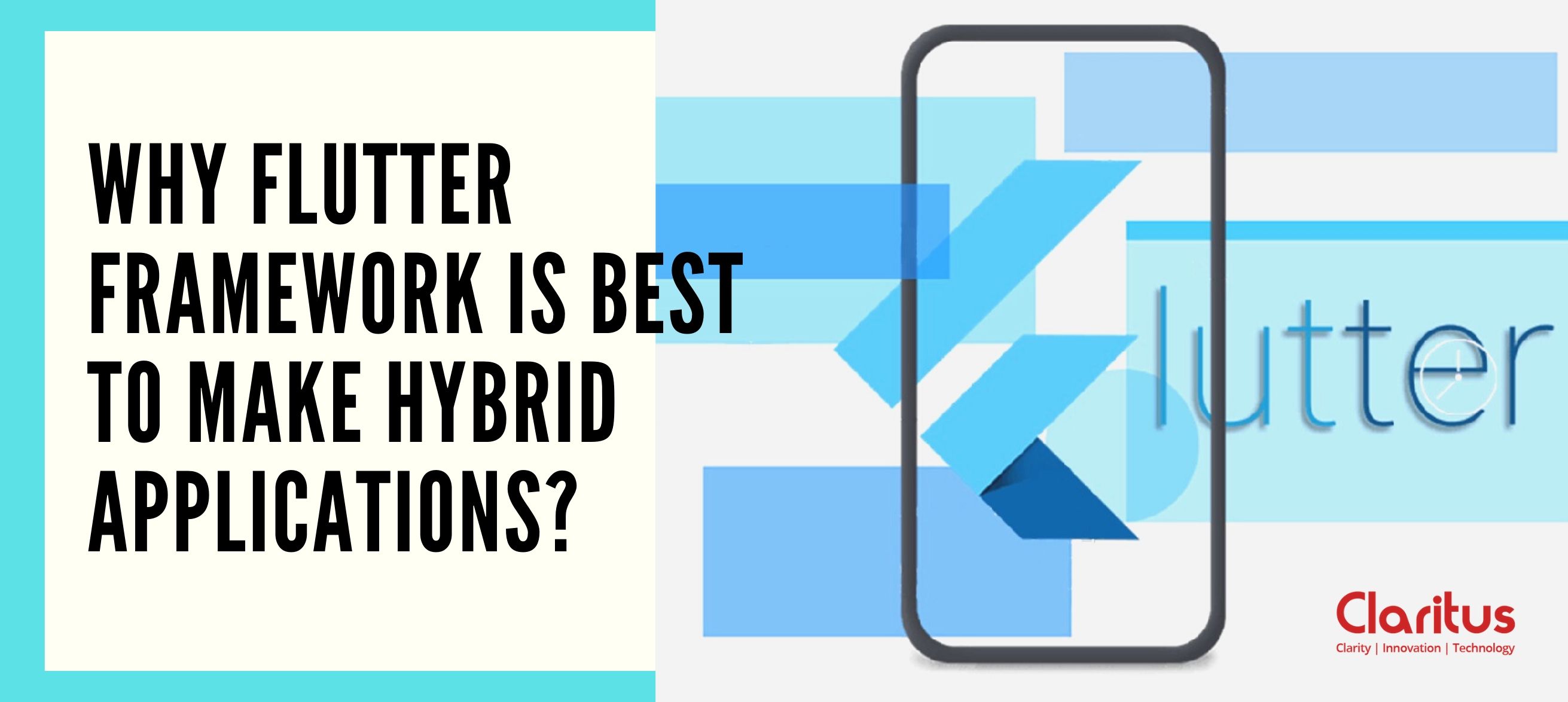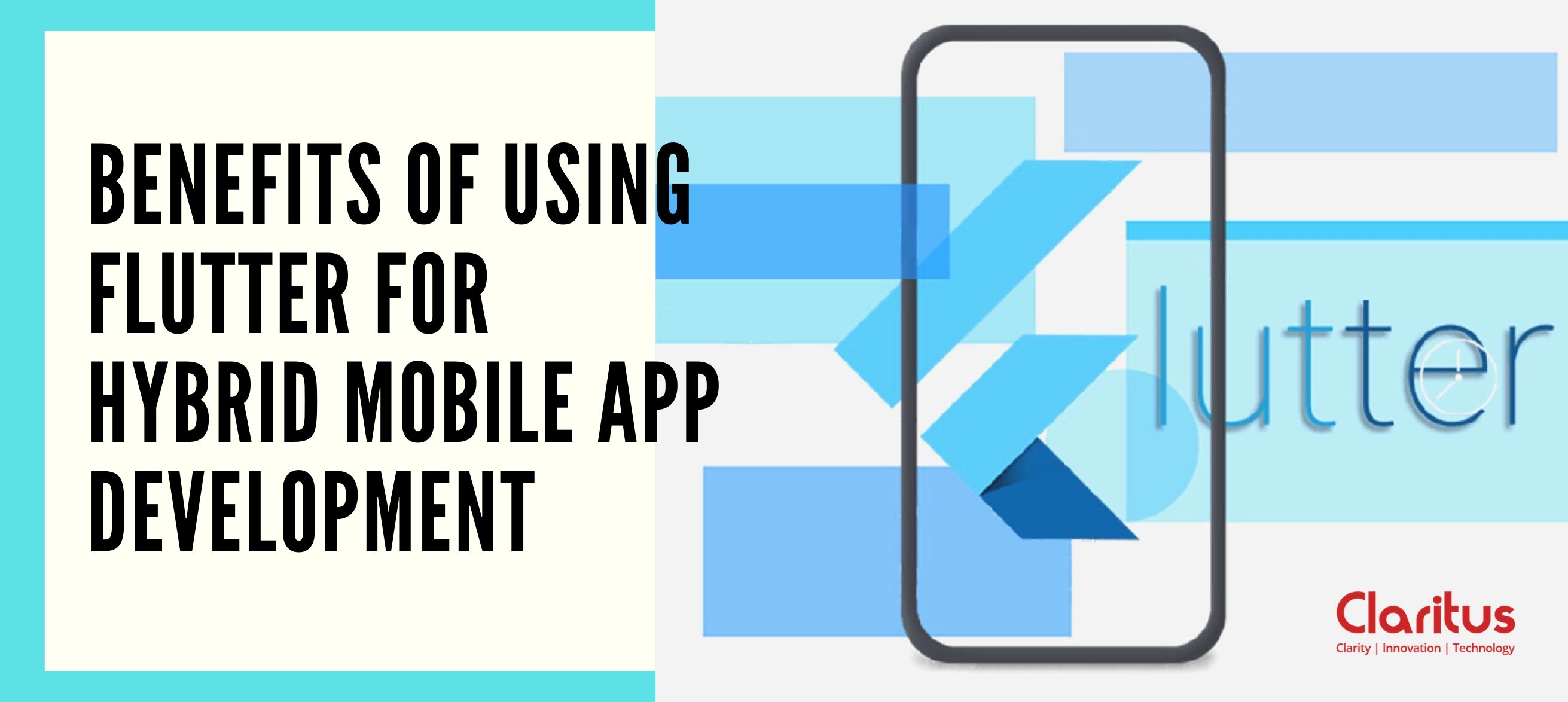Why Flutter Framework is Best to Make Hybrid Applications?
Flutter Framework is a mobile UI framework recently launched by Google that helps to develop amazing Android and iOS applications with a single codebase.
This is completely free available for everyone. That’s why it is also called an open-source platform that allows the developers to build highly-interactive native interfaces on iOS and Android in record time. Its ability to speed up the entire app development process assists the developers in reaching a wider base of audience.
The platform makes for a great choice for creating interactive cross-platform hybrid apps In this article, we will look at the various features of the flutter framework that makes it a top choice for developers who are looking to develop engaging mobile apps. Let’s begin.
Noteworthy Features of Flutter Framework
Since we’re talking about the merits of Google Flutter, it will become domineering to examine the several attributes that flutter app programmers would encounter from the frame.
- >To begin with, the newest beta version of the Google Flutter framework enables the program developers to create programs for both Android and iOS, with one codebase.
- Google has made this frame extremely expressive and flexible by including a library of widgets that are highly scalable. Flutter also provides full support for the creation of customized ports with engaging and exclusive topics.
- The tool makes it possible to access a wide assortment of widgets together with operating in a dynamic interface easily.
- Google Flutter is famous for its productivity. It’s an extremely effective, mobile GPU rendering UI that lets it operate on multiple, up-to-date interfaces.
- With this frame, the programmers can easily insert flutter in their program on the WebView component. This also assists the programmers in easily imagining the internet content from the program. Additionally, this makes browsing the programs easier.
- Flutter additionally allows the programmers to localize their programs. This also aids the programs in attaining a larger foundation of their viewer as they can be used worldwide too.
- Flutter includes a control called Flutter Doctor which helps to spot the glitches or bugs in the program. Using this control, the programmers can quickly track down the issues in the program and categorize them easily. Aside from these, there are more intriguing attributes of Google Flutter which makes it a blessing for the program developers. These include:
- This produces the programs much more intriguing.
- The APIs of this flutter framework is rather sophisticated. It utilizes a 2D GPU-accelerated API which makes the program animations seem cleaner, quicker and smoother.
- Flutter could be embedded in your current apps.
- Together with Flutter, programmers like added support for Google’s Firebase growth stage.
Some Benefits of Using Flutter for Hybrid Mobile App Development
After discussing the amazing features of the Google Flutter Framework, it is certainly a useful asset for all app developers. Moving on, let’s understand how this SDK, Software Development Kit, will prove to be beneficial for the app development industry as well:
1) Faster App Development Process
Flutter supports both IOS and Android, making it a feasible option for cross-platform app development.
It allows the developers to modify widgets and build a highly engaging native interface. Also, the immensely productive rendering engine makes it a great choice for developing native platforms.
2) Striking User Interface
Having an eye-catching user interface is always a big plus for a mobile app. Flutter features Material Design and Cupertino for Android and iOS apps, respectively, that assist the app developers in building highly engaging apps. These are set of visual and motion-rich widgets that make the app look beautiful and interactive on both platforms. These apps are easy to navigate and extremely user-friendly.
3) Accessible Native Features and SDKs
Flutter further makes your app development journey delightful through native codes, third-party integrations, and platform APIs. You can easily access the native features and SDKs on both platforms and reuse the widely-used programming languages for IOS and Android such as Swift and Kotlin.
4) Highly Reactive Framework
With Google Flutter, you can easily modify the interface by changing the variable in the state. Consequently, all changes will reflect in the UI. Also, Flutter makes it easier and quicker to set up the application compared to React Native.
5) Full Compliance with Design Standards
Flutter makes sure that every design component of the app on the particular operating system fully conforms to the design standards. Every element of the app is up-to-date and there is the complete appropriateness of the design across all devices.
Moving on, flutter allows the developers to create personalized widgets by amalgamating the design standards of both iOS and Android.



